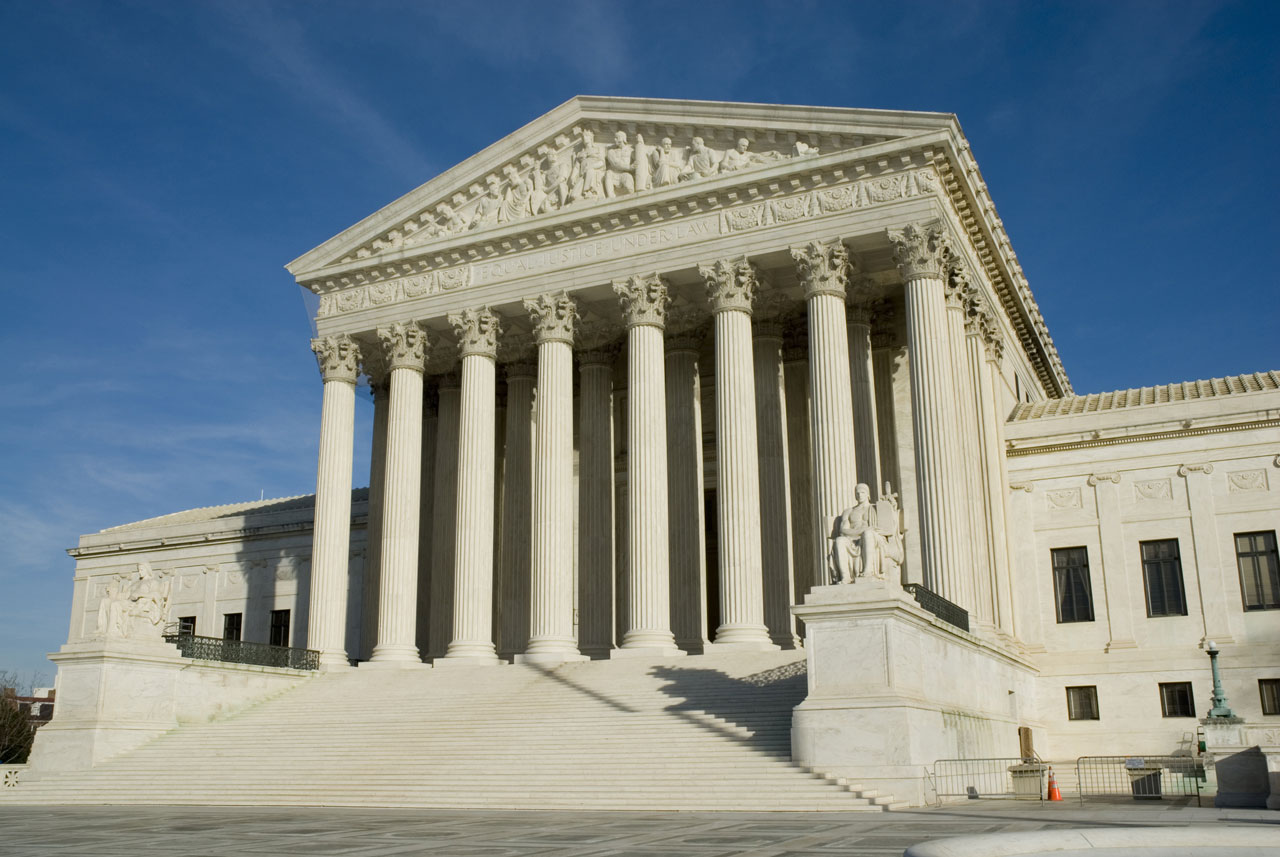WASHINGTON, D.C. (BP)—The U.S Supreme Court unanimously delivered an important victory for religious liberty Thursday, June 17, by upholding a faith-based adoption and foster-care agency’s right to carry out its ministry according to its beliefs.
In a judgment that spanned the ideological spectrum, the nine justices agreed Philadelphia violated the First Amendment’s protection of the free exercise of religion by refusing to contract with Catholic Social Services (CSS) for foster care services. The city halted referrals to the agency for foster homes it licenses in 2018 because CSS does not place children with same-sex couples based on its beliefs about marriage and sexuality.
Religious freedom advocates applauded the Supreme Court’s decision despite its failure to correct a three-decade-old ruling that diminished free-exercise protections.
Daniel Patterson, acting president of the Southern Baptist Ethics & Religious Liberty Commission (ERLC), called the ruling a “decisive” victory for religious freedom.
“The government has many God-given duties, but punishing a group for its theology is emphatically not one of them,” Patterson said in a written statement. “It’s important to note as well that this decision prohibits no one from serving children—it simply ends state discrimination against religious groups.
“If the government boxes out religious organizations and prohibits them from providing foster care and adoption services, the net effect is a massive shortage of available homes,” he said. “Children in need should not be collateral damage in a culture war.”
Chelsea Sobolik, policy director for the ERLC, described the ruling as “good news for children and families because we need a foster-care system that welcomes all who are qualified to serve all who are in need.”
Philadelphia’s exclusion of CSS “is not only unconstitutional but also undermines the very purpose of child-welfare work—to place children in safe, loving homes,” Sobolik said in written comments. “Christians and the institutions formed from our churches are critical to the foundation of foster care in this country. Children are best served when we all work together.”
Lori Windham, senior counsel with the religious-freedom organization Becket, argued for CSS and foster-care parents before the Supreme Court in November 2020. On Thursday, she called it “a beautiful day when the highest court in the land protects foster moms and the 200-year-old religious ministry that supports them. Taking care of children … is a universal value that spans all ideological divides.”
Lifeline Children’s Services, a Christian child-welfare agency that does adoption work, welcomed the decision.
“The Biblical beliefs that compel our organization, and the families that partner with us to adopt kids, are beliefs that should be respected by the government,” said Herbie Newell, Lifeline’s president, in a written release. “The Christian community in America is eager and ready to fulfill our calling to serve the vulnerable and adopt children.”
CSS—which does not place children with same-sex or unmarried heterosexual couples based on its belief about marriage—had worked with Philadelphia for more than 50 years to help provide foster care before the city said in 2018 it would no longer refer children to the agency because its refusal to certify gay couples violated non-discrimination requirements. CSS had never been approached by a same-sex couple and said it would refer such a household to an agency that provides placement with same-sex couples. Nearly 30 agencies work with the city on foster care.
The Third Circuit Court of Appeals in Philadelphia affirmed in 2019 a lower-court opinion, ruling the city had not violated CSS’ freedom of religion or speech.
In the court’s opinion, Chief Justice John Roberts said CSS “seeks only an accommodation that will allow it to continue serving the children of Philadelphia in a manner consistent with its religious beliefs; it does not seek to impose those beliefs on anyone else.”
Philadelphia’s refusal to contract with the Catholic agency to provide foster care services unless CSS “agrees to certify same-sex couples as foster parents cannot survive strict scrutiny, and violates the First Amendment,” Roberts wrote.
Strict scrutiny is the highest standard in the U.S. legal system, requiring the government to show it has a “compelling interest” and is using the least restrictive means to limit a constitutional right.
The chief justice agreed the city has an interest in treating gay individuals and couples equally but said “this interest cannot justify denying CSS an exception for its religious exercise” based on the facts of the case. “The creation of a system of exceptions under the contract undermines (Philadelphia’s) contention that its nondiscrimination policies can brook no departures,” Roberts wrote.
The ERLC joined Alliance Defending Freedom and other organizations in a friend-of-the-court brief for the high court that not only told the justices Philadelphia had violated the free-exercise clause but urged them to overturn the 1990 Employment Division v. Smith opinion, which had the effect of shrinking religious free exercise. In Smith, the high court ruled the Constitution does not require an accommodation for free exercise of religion in the case of a neutral law that is generally applicable to the public.
Even under the Smith standard, Philadelphia violated the free-exercise clause, Roberts said. “No matter the level of deference we extend” to the city, its system of “entirely discretionary exceptions … renders the contractual nondiscrimination requirement not generally applicable,” he wrote. “Because (Philadelphia’s) actions are therefore examined under the strictest scrutiny regardless of Smith, we have no occasion to reconsider that decision here.”
Associate Justice Samuel Alito, joined by Associate Justices Clarence Thomas and Neil Gorsuch, argued in an opinion concurring with the judgment the high court should overturn Smith. Alito described the court’s opinion as “a wisp of a decision that leaves religious liberty in a confused and vulnerable state. Those who count on this Court to stand up for the First Amendment have every right to be disappointed—as am I.”
Bethany Christian Services, a leading Christian evangelical adoption and foster care agency, reversed a policy similar to that of CSS in 2018 to maintain its contract with Philadelphia. Bethany announced in early March it had changed its policy nationally and would place children with same-sex couples.
The ERLC has made a federal solution to the problem for faith-based agencies a priority in its public-policy agenda. It has worked for adoption of the Child Welfare Provider Inclusion Act, which would bar government discrimination against adoption agencies and other child welfare entities that refuse to take part in serving in a way that contradicts their beliefs.





